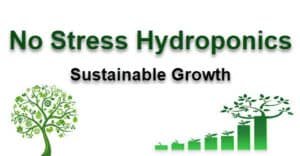
If you’re looking to start up your own farming business, one option that is growing in popularity is hybrid-hydroponic farming.
This type of farming combines traditional soil-based agriculture with a hydroponic system, utilizing the benefits from both methods for an efficient and sustainable way to produce crops.
In this article we’ll explore what hybrid-hydroponic farming really means and why it has become so popular among farmers across the globe. Keep reading to learn more about this innovative form of agriculture!
What Is Hybrid-Hydroponic Farming And What Are The Benefits Of It Over Traditional Farming Methods?
Hybrid-Hydroponic farming is a combination of traditional and hydroponic methods. It utilizes traditional soil-based growing techniques while combining them with hydroponics’ nutrient delivery systems, water conservation, and automation. This allows for plants to be grown in an efficient, cost-effective, and sustainable manner.
The benefits of hybrid-hydroponic farming over traditional farming methods are numerous. Firstly, it requires less water than conventional farming and can be done with a fraction of the space. \
This makes it ideal for urban or small-scale farmers who may not have access to large tracts of land. Secondly, the nutrient delivery systems in hybrid-hydroponic farming allow for precise control over nutrient levels, which leads to greater production and healthier plants.
Additionally, with automation, hybrid-hydroponic systems can be monitored remotely and require less labor compared to traditional methods. Lastly, as mentioned earlier, the soil-based component of hybrid-hydroponics provides additional benefits such as improved soil fertility and increased crop yields.
How Does It Work And What Kind Of Crops Can Be Grown Using This Method?
Hybrid hydroponic farming combines traditional soil-based techniques with specialized hydroponic systems. This system utilizes both soil and an inert growing medium to provide optimal water, mineral, and nutrient availability for plants.
The process begins with preparing a substrate (growing medium) such as perlite, vermiculite, or rockwool that is placed in a shallow tray or container. The substrate is then seeded or transplanted with the desired plant variety and watered with a nutrient solution.
This nutrient solution contains macronutrients and trace elements necessary for the plants’ growth, such as nitrogen, potassium, phosphorus, sulfur, calcium, magnesium and micronutrients such as iron, boron, zinc and manganese.
The nutrient solution is then delivered to the plant’s roots via a drip irrigation system or misting sprayer.
Hybrid hydroponic farming can be used to grow many types of crops, including vegetables, fruits, herbs, flowers, and even trees. Some popular examples of plants grown with this method include tomatoes, cucumbers, peppers, eggplants, strawberries, lettuce, kale, basil, and lavender.
The advantage of hybrid hydroponic farming is that it provides plants with the right amount of water and nutrients they need in order to thrive. Additionally, this method requires less space than traditional soil gardens since there is no need for weeding or tilling.
Hybrid hydroponic farming is also very efficient, as it maximizes the use of water, fertilizer, and other resources. Finally, plants grown in this system often have faster growth rates than those grown in soil gardens.
Are There Any Drawbacks To Using This Type Of Farming System, And If So, What Are They?
Yes, there are some drawbacks to using a hydroponic farming system. One of the biggest drawbacks is cost. Hydroponic systems require special equipment and nutrients that can be expensive, which makes them difficult for smaller farms to set up and maintain.
Additionally, soil-less growing often requires more labor intensive work than traditional farming methods because the plants must be monitored and maintained more closely.
There is also the potential for bacteria to build up in the hydroponic system, which can result in nutrient deficiencies or plant diseases that can affect the quality of produce.
Finally, because hydroponics relies on artificial light rather than natural sunlight, it can require extra energy resources to power lights for plants to grow.
Despite these drawbacks, hydroponic systems offer many advantages that make them an attractive option for farmers looking to increase production and reduce their environmental impact.
What Do You Think Are The Advantages Or Disadvantages Of Using Hybrid-Hydroponic Farming In Comparison To Other Forms Of Agriculture Production?
Hybrid-hydroponic farming offers several advantages over other forms of agriculture production. Firstly, hybrid-hydroponic farming is much more space efficient as compared to traditional soil based agricultural production methods.
This means that you can produce a large amount of crops in a small area, leading to higher yields and less land being used for food production.
Additionally, hybrid-hydroponic farming is less prone to soil erosion and nutrient leaching, as the plants are grown in a sand or gravel medium rather than in soil.
This means that there is less need for chemical fertilizers and pesticides which can be both expensive and environmentally damaging.
Another advantage of hybrid-hydroponic farming is that it can be done indoors, meaning that you don’t need to rely on seasonal changes in climate or weather fluctuations. This allows for a high degree of control over the environment and water usage, leading to increased yields with less cost and time invested by farmers.
The main disadvantage of hybrid-hydroponic farming is the initial setup cost. The installation of the necessary equipment, such as hydroponic tanks and lighting systems can be expensive.
Additionally, hybrid-hydroponic farming requires more expertise and knowledge to maintain than traditional agricultural production methods.
Conclusion:
In conclusion, hybrid-hydroponic farming is a type of agriculture that combines the best aspects of both hydroponic and traditional farming techniques. This results in a more efficient method of growing crops that yields higher quality produce.
If you’re interested in starting your own hybrid-hydroponic farm, there are many resources available to help you get started. With the right planning and execution, hybrid-hydroponic farming can be a successful and rewarding venture.
